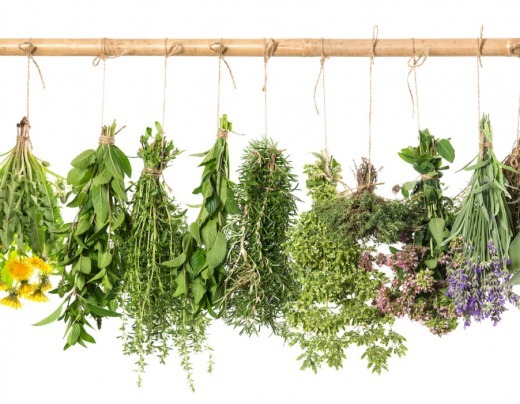Is Aromatherapy combined with Traditional Chinese Medicine a good match?
Secretary-General ICTMNutritional & Functional Medicine

Secretary-General ICTM
Nutritional & Functional Medicine Practitioner, DSY Wellness & Longevity Center
McMed (NM), F’Ship Anti-Aging Metabolic & Functional Medicine (A4M, USA)
5 Herbs for Longevity
The duration of one's life can be influenced by many factors, including genetics, environment, and lifestyle. It is true that our genes do play a role; however, an abundance of research shows that diet and lifestyle are largely associated with one's life expectancy. The combination of a healthy weight, increased physical activity, reduced stress, and good sleep hygiene is commonly prescribed to improve one's longevity. Additional factors such as the inclusion of herbs and spices may also naturally boost one's chance of living longer.
Now, aging is a natural, inevitable process that everyone will experience. At this time, there isn't a magic ingredient or additive that will completely prevent it, but the following five herbs and spices are associated with longevity and can be easily sprinkled throughout one's diet!
Over the last few years, adaptogens have made their entrance into the wellness world and continue to be on trend. Adaptogens refer to herbs and roots that "adapt" to what your body needs and help resist various stressors. Ashwagandha is one adaptogen that is an ancient herb of the Indian ayurvedic system of medicine. It has been noted to provide multiple health benefits, one being a reduction in stress and anxiety in adults. This powerful herb can be found in supplement or powder form and can easily be added to smoothies.
Holy basil is another adaptogenic herb and is also used to manage anxiety and stress. Early research suggests that taking holy basil leaf extract twice daily after meals reduces anxiety and depression; however, more research is needed for sufficient evidence.
Turmeric, a popular spice that has contributed to the trendy golden milk, is widely known for its anti-inflammatory and antioxidant properties. Curcumin is the active compound within this powerful root and is responsible for these effects. Increased inflammation throughout the body can increase the risk of cancer, cardiovascular disease, diabetes, and other chronic diseases. The addition of turmeric during cooking is one way to protect yourself from these conditions.
Frequently found in the pantry, cinnamon is another spice that has been shown to have medicinal benefits. Some studies have shown cinnamon to lower blood sugar levels and improve insulin resistance. Alarmingly, 100 million U.S. adults are now living with diabetes or prediabetes, and it is the seventh leading cause of death. Research on the benefits of this spice is still ongoing, and larger studies are needed; however, the addition of cinnamon to one's diet can be an easy, cost-effective way to assist with diabetes prevention.
Quality of life is also an important factor when considering the addition of years. Sage is a leaf that historically has been used to promote healing, wisdom, protection, and longevity. Recent research shows promising evidence that sage can improve brain and memory function, especially in those with mild to moderate Alzheimer's disease. So, next time you're looking for an herb or spice to add to your meal, try a touch of sage.